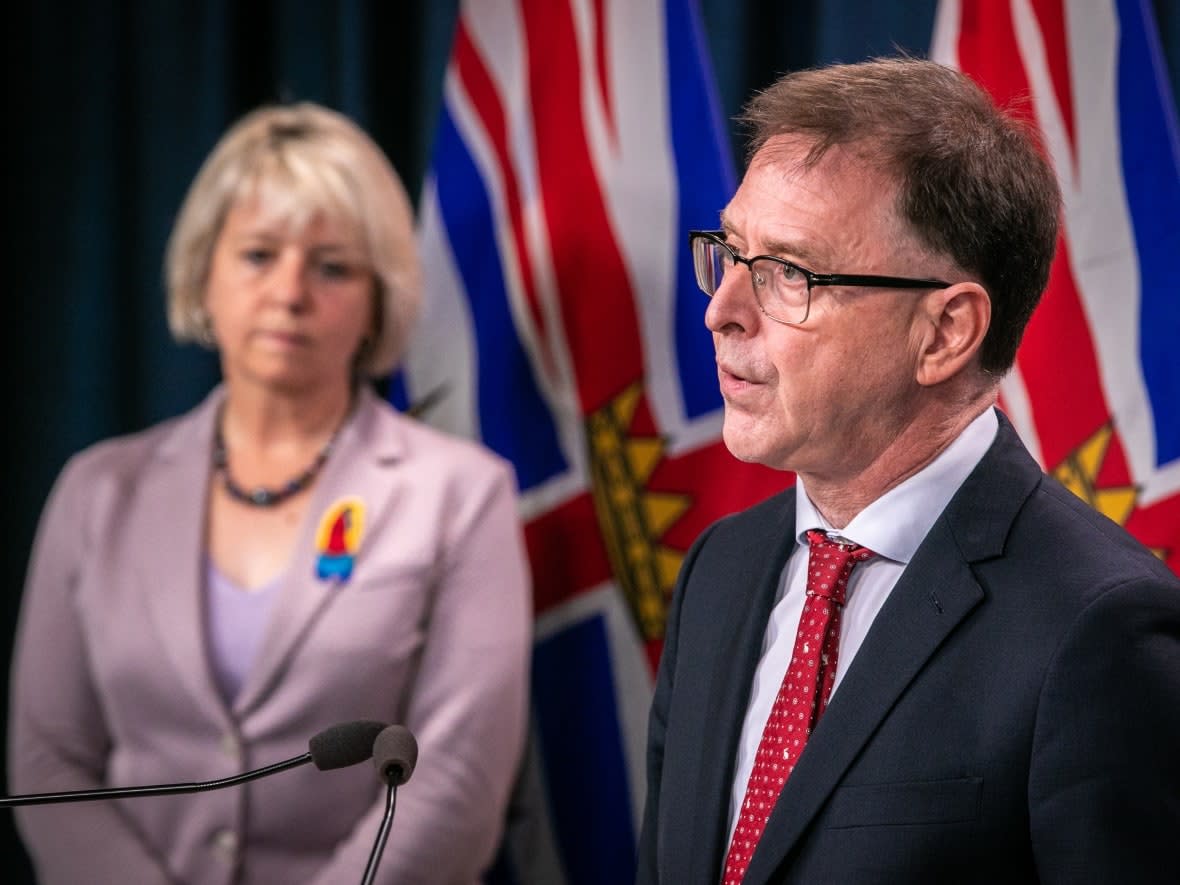'We cannot eliminate all risk': B.C. health officials shift emphasis to preventing transmission of COVID-19

Health officials say contact tracing is no longer an effective way of controlling the spread of the coronavirus and are asking British Columbians to self-monitor for symptoms, follow health orders and, above all, get vaccinated to help protect society's most vulnerable.
Health Minister Adrian Dix and Provincial Health Officer Bonnie Henry briefed the public on the latest situation in B.C. during a Friday morning news conference. Henry said the province is shifting its approach to managing the virus in light of the spread of the highly transmissible Omicron variant.
Henry said there is no longer capacity to test everyone who thinks they may have contracted the illness, and that given that most people suffer mild symptoms when infected with Omicron, that shift will be toward preventing transmission.
"We have to change our way of thinking," said Henry.
She urged anyone who has not been vaccinated to do so immediately. Other prevention measures should be no surprise to British Columbians at this point: They include frequent handwashing, maintaining social distancing, keeping social gatherings small, wearing a mask and following workplace safety plans.
"We cannot eliminate all risk, and I think that's something we need to understand and accept," said Henry.
Those who are over age 70, clinically vulnerable, immunocompromised or pregnant should get a COVID-19 test if they suspect they have the virus, Henry said, because they might need treatment immediately.
But everyone else should self-isolate at home if they suspect they have the virus, she said.
5-day isolation for vaccinated, 10 for unvaccinated
She said the Omicron variant has a faster incubation period than previous variants, and laid out what people need to do if they do have the virus.
People who have been vaccinated, as well as children, are to isolate for five days — the reason being, according to Henry, the vaccine helps people clear the virus from their system faster and children are at lower risk of severe illness.
Non-vaccinated people who test positive must self-isolate for 10 days.
The in-person briefing comes in the midst of the pandemic's fifth wave in the province, with the highly transmissible Omicron variant causing strain on hospitals.
As of Thursday, 95 per cent of hospital beds were occupied across all health regions. The number of patients in intensive care has risen approximately 35 per cent since last month.
The province also reported a total of 58 active outbreaks in assisted-living, long-term and acute-care facilities on Thursday.
Henry said Friday the highest risk factor for getting severely ill or dying from COVID-19 remains age.
"It is our seniors and elders who are most at risk," she said.
People over 80 are 28 times more likely to end up in hospital, Henry said.
Rapid tests wanted
With long-term care residents facing high risk, Dix said Friday the province will be receiving and allocating more than 15 million rapid tests to these facilities before mid-February.
As more shipments arrive after that, Henry said, assisted living facilities will start to receive some as well.
Omicron has raised the demand for rapid tests in B.C., which have not been made readily available to residents by the provincial government.
The Ministry of Education says 200,000 rapid antigen test kits are being shipped to school districts, independent schools and First Nation schools across B.C. this week for staff, including teachers and administrators.
It says the number of teaching and non-teaching staff will determine how many kits go to each school district.
The ministry says there are around 103,700 staff working in public, private and First Nation schools.
Many advocates and opposition MLAs say they want the tests to be made freely available to all B.C. residents as another layer of protection against the spread of COVID-19.


